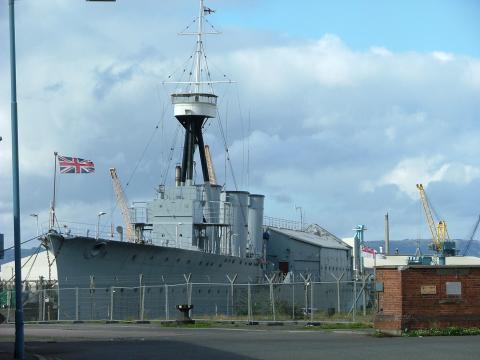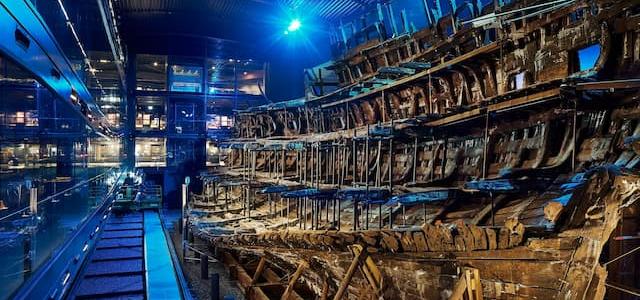
NHMF announces £1million to save last surviving first world warship for the nation
Today, NHMF announced a pledge of £1million that will help secure HMS Caroline for the nation after months of uncertainty around its future. It is the last surviving large warship from the British First World War fleet still afloat.

The Prime Minister is announcing the news at Imperial War Museum as he unveils the Government's programme to mark the centenary of the First World War.
Jenny Abramsky, Chair of the NHMF, said: "The National Heritage Memorial Fund was set up to protect our most precious heritage at risk as a memorial to those who have given their lives for this country. Our trustees felt that HMS Caroline absolutely must be safeguarded for future generations to enjoy. NHMF's pledge of £1million will now enable urgent repairs to take place and make a long-term solution possible for this immensely important national treasure. This is very exciting news to highlight alongside the variety of activities taking place to mark the centenary of the First World War."
HMS Caroline was decommissioned from the Royal Navy in 2011 and, with no guarantee of preservation in place, the ship has been at risk of being broken up. Now thanks to NHMF's commitment, she has a secure future in Belfast where thousands of people will be able to visit and learn about her unique role in the First World War.
NHMF's commitment underpins an effective partnership between the Ministry of Defence (MOD), Department of Enterprise, Trade and Investment (DETI) in Northern Ireland, the National Museum of the Royal Navy (NMRN) at Portsmouth, to create a plan for the future of the ship.
Built in Merseyside in 1914, HMS Caroline is the last survivor of the Battle of Jutland, the First World War's longest, most strategically important sea battle and the only time the full German and British navies engaged directly. A light cruiser, weighing 3,750tons and 446ft long, when built she was technologically ground-breaking. It was her speed that enabled the British Navy to respond to the increasing threat of long-range torpedo attacks on battleships, locating the enemy fleet and then rapidly carry news back to the British battleships.
When the war ended she became a static training ship based in Belfast. During the Second World War, HMS Caroline was back in action, acting as a key base for operations to protect the North Atlantic convoys from U-boat attacks. In 1945, she returned to her role as a static drill ship in Belfast until decommissioned in 2011, making her the longest ship in commission in the British Navy after HMS Victory.
The most significant warship of the 20th century, HMS Caroline is one of only 200 vessels in the National Historic Fleet. What is even more significant about her is that she is barely unchanged from the day she was constructed and is 80 per cent complete.
HMS Caroline will now remain in Belfast and undergo a detailed survey to assess the extent of the repairs required to make her secure.
Notes to editors
HMS Caroline joins a diverse range of over 1,200 iconic objects and places which have been safeguarded by the NHMF to the tune of over £300million.
Further information
NHMF press office: Natasha Ley on 020 7591 6143, email:natashal@hlf.org.uk or Alison Scott on 020 7591 6032 / 07973 613 820, email: alisons@hlf.org.uk.

